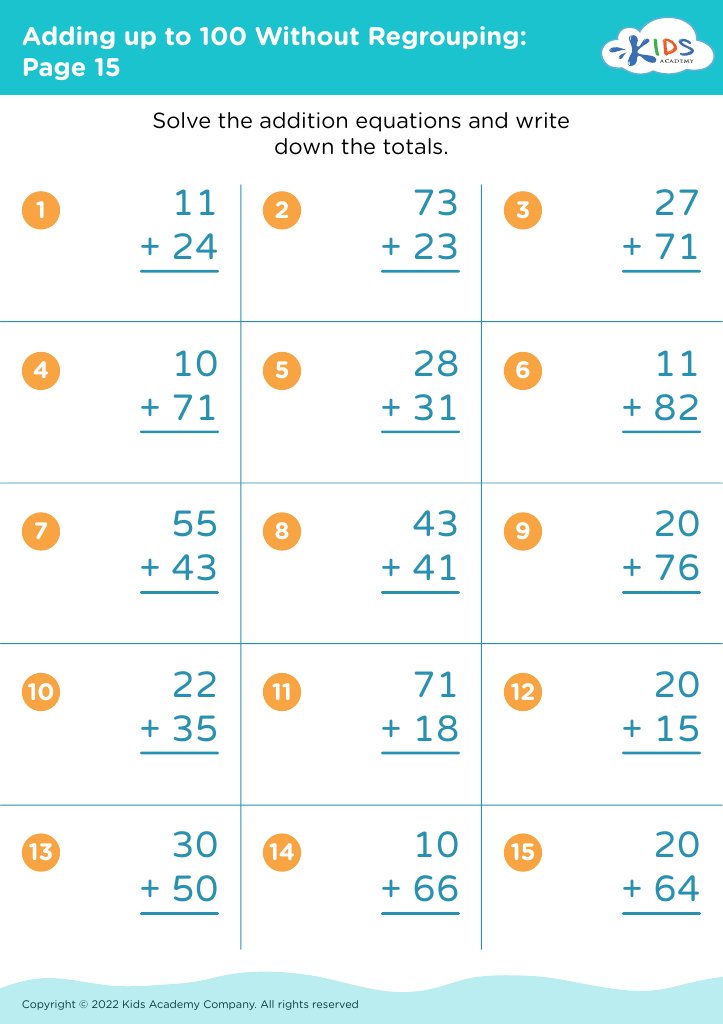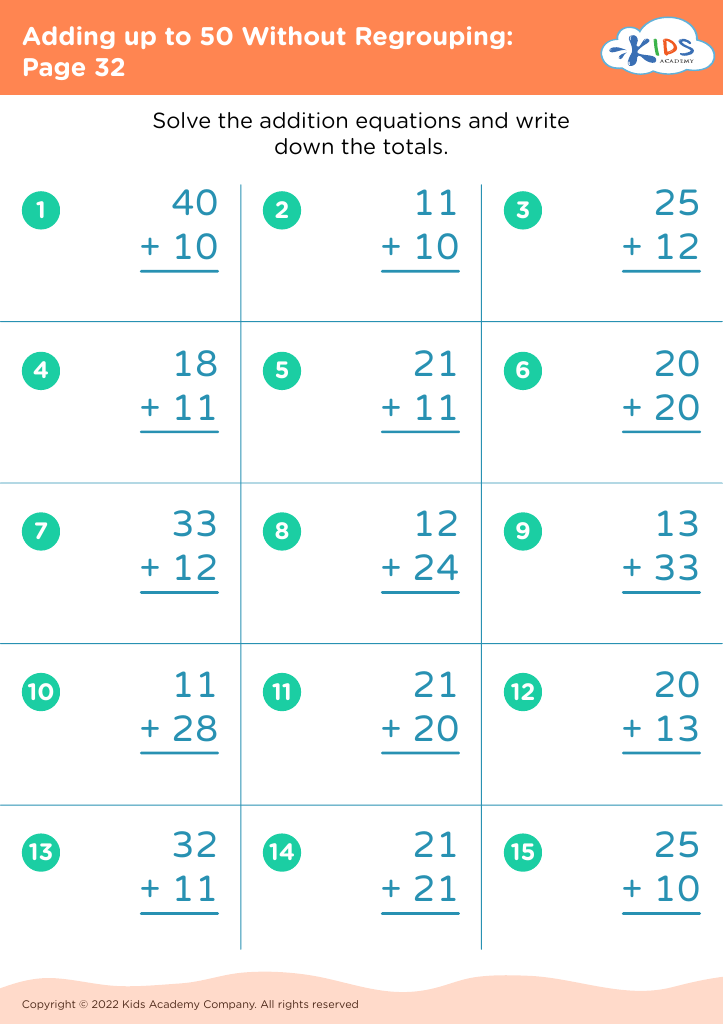Counting objects Addition Worksheets for Ages 6-7
8 filtered results
-
From - To
Explore our engaging Counting Objects Addition Worksheets designed specifically for children ages 6-7! These worksheets help young learners develop essential math skills by counting and adding various objects. Each interactive activity makes learning addition fun and visually appealing, encouraging children to connect math with real-life scenarios. With a wide range of colorful illustrations and clear instructions, these worksheets foster independent learning and boost confidence in young mathematicians. Perfect for both classroom and home use, our cutting-edge resources promote foundational math skills while keeping students motivated. Dive into the world of addition and watch your child's skills soar!
Counting objects and addition are fundamental skills for children aged 6-7, forming the building blocks for their mathematical understanding and problem-solving abilities. During this developmental stage, children engage in familiar, hands-on experiences that foster their numerical proficiency.
Firstly, counting objects helps strengthen a child's understanding of quantity and number relationships. This skill is not only vital for addition but also lays the groundwork for more advanced concepts like subtraction, multiplication, and division. It promotes cognitive flexibility, enabling them to analyze and manipulate numerical data confidently.
Moreover, mastering addition through counting cultivates perseverance and critical thinking. As children tackle various counting tasks, they develop strategies for solving mathematical problems, enhancing both their academic performance and self-esteem. This foundation is essential for daily life, as basic math skills are used in everything from shopping to cooking.
Parents and teachers play a crucial role in nurturing these skills. Engaging children in fun, interactive counting activities can create a positive learning environment while reinforcing the importance of math in everyday situations. By fostering a love for numbers and ensuring competency in counting and addition, caregivers and educators help shape a child's mathematical future and ignite a lifelong interest in learning.



























